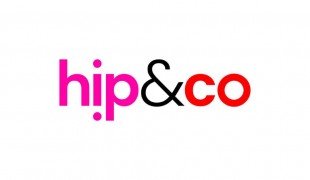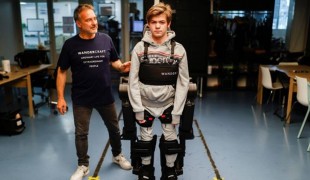- 4277
- 286
- 14
- 12
- 0
- Help Ukraine
About the solution
Peter Lammer, a 52-year-old cook from Germany, faced a life-altering challenge after a severe motorcycle accident. Previously an active and dedicated family man, Peter’s world changed drastically when the accident resulted in debilitating leg injuries and an 80% disability rating.
Confronted with overwhelming physical pain, mental strain, and financial uncertainty, he could have easily succumbed to his circumstances. Instead, driven by his commitment to his family and his passion for his work, Peter channeled his adversity into innovation and with the help of his friend Bernhard Tichy created StandSmart.
StandSmart is a dynamic standing aid designed to support both the legs and trunk, keeping the user's hands-free for productive tasks. This invention aims to bridge the gap between rehabilitation and effective reintegration into the workforce, transforming these concepts from mere buzzwords into tangible realities. The core of this innovation is the Standing Ovation system, a meticulously engineered solution offering various benefits.
Standing Ovation is an individually adapted rail system featuring a seat unit that significantly alleviates leg strain. This advanced system is specifically designed to support users in a standing position, reducing pain, swelling, and the need for medication. By providing substantial lower extremity relief, it enhances mobility and work speed while fostering economic independence and meaningful employment.
Standing Ovation is comprised of three key components:
1. Rail System: A versatile rail structure that can be either overhead-mounted or free-standing, tailored to fit various environments.
2.C-Bar: A C-shaped seat bar that provides critical support and stability.
3.Seat Lifting Unit: A lifting mechanism that integrates with the C-bar to enable three-dimensional movement.
This innovative system allows the device to support the user's torso weight, ensuring that hands remain free for tasks. Additionally, when lifting loads, the device absorbs any extra weight, minimizing leg strain. The spring-loaded rotation unit further enhances user freedom, providing maximum accessibility and adaptability in any setting where Standing Ovation is utilized.
Source of Information: https://www.standingovation.at/
Contact information: https://www.instagram.com/peter.lammer.standingovation/ | office@standingovation.at | https://www.facebook.com/bernhard.tichy.1/ | linkedin.com/in/bernhard-tichy-61a0aa1b0
This solution shall not include mention to the use of drugs, chemicals or biologicals (including food); invasive devices; offensive, commercial or inherently dangerous content. This solution was not medically validated. Proceed with caution! If you have any doubts, please consult with a health professional.
DISCLAIMER: This story was written by someone who is not the author of the solution, therefore please be advised that, although it was written with the utmost respect for the innovation and the innovator, there can be some incorrect statements. If you find any errors please contact the patient Innovation team via info@patient-innovation.com
-
-
387
-
0
-
4074

Hip & co- a mum's invention for hip dysplasia
CAREGIVING
BODY BALANCE: Maintaining body balance
STANDING UP: Standing up from a seated position
WALKING WITH A WALKING AID: Walking with a walking aid
WALKING: Walking
Hip Dysplasia
Assistive Daily Life Device (to help ADL)
Walking Aid (wheelchair/walker/crutches)
Difficulty walking or moving
Muscle weakness
Limited range of motion
Muscle pain or stiffness
Loss of muscle coordination
Muscle cramps or spasms
Joint deformity
Joint redness or warmth
Swelling or inflammation
Difficulty bearing weight
Numbness or tingling in the extremities
Frequent falls
Joint pain or swelling
Restoring mobility
Managing pain
Promoting self-management
Preserving Organ Function
Recovering from Traumatic Injuries
Maintaining Balance and Mobility
Raise awareness
Caregiving Support
General and Family Medicine
Orthopedics
Pediatrics
Australia
-
-
-
421
-
0
-
5910

Father creates exoskeleton to help son with genetic neurological condition walk
BODY BALANCE: Maintaining body balance
STANDING UP: Standing up from a seated position
WALKING WITH A WALKING AID: Walking with a walking aid
CAREGIVING
Cervical spinal cord injury/Tetraplegia
Assistive Technology access
Walking Aid (wheelchair/walker/crutches)
Restoring mobility
Managing pain
Promoting self-management
Preserving Organ Function
Managing Neurological Disorders
Recovering from Traumatic Injuries
Maintaining Balance and Mobility
Restoring Blood Circulation
To improve Treatment/Therapy
Preventing (Vaccination, Protection, Falls, Research/Mapping)
Raise awareness
Caregiving Support
General and Family Medicine
Intensive Care Medicine
Neurology
Physical Medicine and Rehabilitation
Sports Medicine
France
-
-
-
659
-
0
-
9697

Father creates special crutches to help his daughter
WALKING WITH A WALKING AID: Walking with a walking aid
STANDING UP: Standing up from a seated position
BODY BALANCE: Maintaining body balance
Walking Aid (wheelchair/walker/crutches)
Restoring mobility
Promoting self-management
Managing Neurological Disorders
Promoting inclusivity and social integration
Recovering from Traumatic Injuries
Maintaining Balance and Mobility
To improve Treatment/Therapy
Preventing (Vaccination, Protection, Falls, Research/Mapping)
Orthopedics
Pediatrics
Physical Medicine and Rehabilitation
Mobility issues
Pediatric Innovations
Solutions for Disabled people
United States
-
 en
en